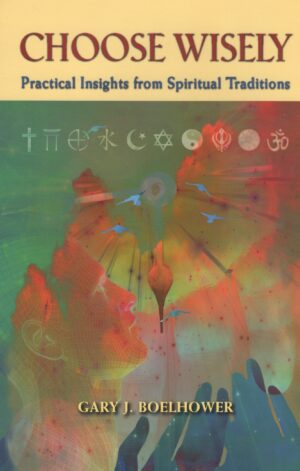
I picked up this book at a local arts and crafts fair here in Duluth. I’ve met and chatted with the author, a professor at a local college, on a number of occasions and, having enjoyed his poetry (insert the author’s name in the search bar on this site to see other reviews) so I thought I’d give his prose a try.
Boelhower uses the faith traditions of the world’s major religions (Hinduism, Buddhism, Judaism, Christianity, Confucianism, and Hinduism) to craft a model for both joint (institutional) and individual decision making in a modern world. To do so, he culls five key wisdom principles common to our major faiths to create operating principles and judgmental criteria to assist readers in coming to wise and clearly-thought decisions. The five tenets cited (and used) by the author in crafting his model include:
- Respect for all persons;
- Appreciation of the wholeness of being human;
- Recognizing the interconnectedness of all reality;
- Valuing inner wisdom and personal experience;
- Attending to preservation and transformation.
The book often times seems directed more to institutional and corporate collaborative thinking than individual problem solving, which is my main criticism of the work. However, Boelhower’s organization and elucidation of his salient points does transfer from group institutional decision making to family, personal, and smaller group transformation through careful discussion, planning, and implementation.
All in all, I came away with, I think, a more thoughtful and kind approach to working with others, both in my family and in my greater world.
4 stars out of 5
Peace
Mark


